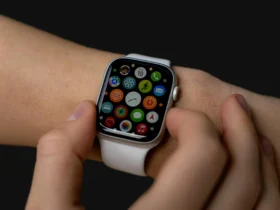Last Updated on May 21, 2024 by Daniele Lima
From treadmill to hypothyroidism: How to achieve good physical shape effectively and healthily
When we talk about weight loss, we touch on a subject and a desire desired by many. There are several paths to this achievement, which may vary in terms of methods and duration of effectiveness, but it is important to remember that there are no miraculous or magical solutions for weight loss.
What really works is having a routine of healthy habits that leads in the exciting direction of a longer, more vigorous life. On this journey, we will show you some strategies and motivations that can make weight loss a rewarding experience with positive results.
You will also discover how to overcome specific problems, such as hypothyroidism, to maintain your health in a safe and sustainable way.
We are inviting you to explore the world of health and well-being, discovering the secrets to achieving your goals in an intelligent, objective, and extremely satisfactory!
Table of Contents
1 – Weight Loss: The Beginning of the Journey
You need strong motivation to start your weight loss journey. Motivation is the driving force behind success. Set realistic goals and describe the results you want to achieve. Remember that weight loss is a marathon, not a sprint.
Fitness motivation is important to sustain long-term efforts. In the weight loss process, an effect that comes on extremely quickly can also go away just as quickly, the well-known and feared “accordion effect”.
In addition to the physical aspect, it is important to focus on developing healthy habits in the long term. We are talking about good nutritional education, and understanding more about the foods that have high nutritional value.
You may have heard the saying “You are what you eat”, so keep a food diary. Monitoring your progress is a very effective strategy.
It has already been proven that Very strict diets are not sustainable in the long term, as you can see in this article written by nutrition specialist Simone Martens on the G1.globo website.
Starting your weight loss journey is an important step-by-step towards achieving your goal. These are attitudes that will become your new lifestyle, without it being a heavy burden to carry.
This entire process begins with setting realistic goals, creating a healthy eating plan, and incorporating regular physical activity.
extremely important to stay motivated and build a support system. We cannot fail to consider the emotional aspect of the trip, developing strategies to deal with stress and emotions that can lead you to indulge in inappropriate foods or seek momentary relief.
Support systems such as friends, family, and support groups can be important during this process. We need to highlight that weight loss is a personal and unique journey. So, celebrate even the small victories along the way, and prepare yourself for the new challenges to come. Medical monitoring and guidance from a nutritionist can be fundamental to your success and safety during this journey.
Some steps like the ones mentioned below will help you a lot in this weight loss process:
Hydration:
Drink a lot of water. Adequate hydration is important for maintaining metabolic function and helping to burn fat.
Meal Planning:
Plan your meals and snacks in advance to avoid unhealthy options. Eat small portions at regular intervals to keep your metabolism active.
Intake Monitoring:
Use apps or food diaries to track what you eat. This will keep you aware of your caloric intake and help you make more conscious choices.
Avoid excess carbohydrates:
Reduce your consumption of refined carbohydrates, such as white bread and pasta. Opt for complex carbohydrates like whole grains and legumes.
Include Proteins:
Lean proteins help maintain muscle mass and speed up metabolism. Include chicken breast, fish, eggs, and vegetables in your meals.
Adequate Rest:
Quality sleep is essential for recovery and hormonal regulation. Try to sleep at least 7-8 hours a night.
Stay Motivated:
Find a source of motivation, like a friend to work with or a fitness app. Record your progress and celebrate the small achievements along the way.
Avoid Extremes:
Avoid extremely restrictive diets or excessively intense workouts, as they can be unsustainable in the long term and harm your health.
Consult a professional:
Before beginning any weight loss program, it is advisable to consult a healthcare professional, such as a doctor or nutritionist, to ensure that your plan is safe and suited to your individual needs.
2. How to Lose Weight on a Treadmill in a Month

Losing weight on the treadmill in a month is an achievable goal, but it requires dedication, planning, and a balanced approach. Healthy weight loss is typically 1 to 1 pound per week, which is the equivalent of cutting out about 3,500 calories per week. Here are some unique tips to help you achieve this goal:
Losing weight on the treadmill in a month is a goal that requires dedication, consistency, and a balanced approach that includes exercise and diet. Here are some unique tips to help you achieve your goals:
Set realistic goals:
Set realistic and achievable weight loss goals for the month. Remember, healthy weight loss is typically 0.5 to 1 kg per week.
Vary the intensity of your exercise:
Instead of exercising at a steady pace, try high-intensity interval training (HIIT) on a treadmill. This includes alternating periods of high intensity and light recovery. HIIT can speed up your calorie-burning rate and increase exercise efficiency.
Increase the incline:
Increasing the incline of the treadmill during your workout will target different muscles, burn more calories, and feel like running up a hill, which is great for cardiovascular health and fat burning.
Maintain your target heart rate:
Use a heart rate monitor to keep your workouts in the fat-burning zone. This will help you maximize the effectiveness of your treadmill workout.
Do resistance exercises:
Include resistance exercises like squats, lunges, and leg raises in your treadmill workouts. It tones your muscles and stimulates your metabolism, helping you burn more calories throughout the day.
To be consistent:
Plan your exercise routine consistently and perform at least 4-5 treadmill sessions per week. Consistency is key to seeing results, so don’t skip a workout.
Take care of your diet:
There’s no need to exercise on a treadmill if you don’t follow your diet. Choose a balanced diet rich in vegetables and lean proteins, and avoid processed foods full of empty calories.
Adequate hydration:
Drink plenty of water to stay hydrated during exercise. Dehydration can affect treadmill performance.
Have a good night of sleep:
Adequate sleep plays an important role in weight loss. Get quality sleep to help your body recover and rebuild muscles.
Professional orientation:
If possible, consult a medical professional, such as a nutritionist or personal trainer, to create a personalized plan and receive guidance specific to your weight loss goals.
3. How to Lose Weight With Hypothyroidism
[A Unique Challenge]
Weight loss due to hypothyroidism is a unique challenge because the condition affects the body’s metabolism and function. Hypothyroidism is a condition in which the thyroid gland does not produce enough thyroid hormones, which can cause a variety of symptoms, including weight gain. Here are some important things to consider when trying to lose weight with hypothyroidism:
Slow metabolism:
The thyroid gland plays an important role in regulating the body’s metabolism. If your thyroid gland is not working properly, your metabolism may slow down and you may gain weight. Even with a healthy diet and exercise, weight loss may be slower than normal.
Difficulty burning calories:
Hypothyroidism causes your body to burn fewer calories at rest, making it difficult to create the calorie deficit necessary for weight loss. That’s why it’s important to be realistic about your weight loss expectations.
Water retention:
Many people with hypothyroidism experience water retention, which can cause bloating and temporary weight gain. Weight loss can be even more frustrating because fluid retention can hide the results.
Motivation difficulties:
Hypothyroidism can make it difficult to lose weight, which can make motivation difficult. It’s important to remember that weight loss is possible, but it can be a longer, more gradual process.
Multidisciplinary approach:
A multidisciplinary approach is important to address weight loss issues associated with hypothyroidism. This includes working closely with an endocrinologist to adjust your medications, as well as working closely with a nutritionist and personal trainer to develop a specific eating and exercise plan for each condition.
Focus on Diet:
Diet plays an important role in weight loss in hypothyroidism. It’s important to choose healthy, nutritious foods and avoid foods that may worsen symptoms, such as processed or high-sugar foods. It is important to monitor your calorie intake and maintain a balanced diet.
Exercise regularly:
Exercise is an important part of weight loss, even if you have hypothyroidism. However, you may need to adjust the intensity and duration of exercise according to your physical abilities. Exercise helps speed up metabolism and improve insulin sensitivity.
Patience and persistence:
Weight loss for hypothyroidism requires patience and persistence. It is important to understand that results may take longer to appear and you may experience plateaus on your weight loss journey. It is important to have discipline and follow the plan.
4. How to Lose Weight While Pregnant

[Special Care]
Attention moms! Weight loss during pregnancy is inappropriate and can put the health of both mother and baby at risk. During pregnancy, it is important to focus on maintaining a healthy weight and gradually gaining weight to ensure proper fetal development.
However, there are times when women lose weight during pregnancy, but this should always be monitored by a medical professional and is usually associated with a specific medical condition.
Here are specific tips and precautions to consider regarding weight loss during pregnancy:
Medical Monitoring:
If you lose weight during pregnancy, it is important to seek immediate help from your gynecologist obstetrician, and fertility specialist. They will evaluate your condition and determine the cause of your weight loss.
Causes of weight loss:
Weight loss during pregnancy can be caused by frequent vomiting (pregnancy morning sickness), metabolic complications, malnutrition, or other medical conditions. It is important to identify the underlying cause and treat it appropriately.
Proper nutrition:
During pregnancy, nutrition is important for healthy fetal development. Eat a balanced diet that provides enough calories and nutrients for you and your baby. If you have nutritional problems, your doctor may recommend nutritional supplements.
Weight control:
If you were overweight or obese before pregnancy, your doctor may recommend special monitoring for weight gain during pregnancy. In some cases, maintaining a stable weight or gaining less weight than recommended may be helpful, but this should only be done under medical supervision.
Healthy Weight Gain:
Most pregnant women are advised to gain a healthy weight during pregnancy. The recommended amount of weight gain may vary depending on a woman’s pre-pregnancy body mass index (BMI). This is important to ensure your baby grows well.
Hyperemesis gravidarum:
Hyperemesis gravidarum is a condition in which women experience severe nausea and vomiting during pregnancy, which can lead to weight loss. Treatment may include antiemetics, rehydration, and dietary adjustments.
Pay attention to nutritional needs:
During pregnancy, your body needs more of certain nutrients, such as folic acid, iron, calcium, and protein. Follow your doctor or nutritionist’s instructions to meet these requirements.
5.1 – How to Lose Weight Fast in 2 Weeks
5.2 – How to Lose Weight in Your Face
Losing weight quickly in two weeks, especially from the face, is challenging, and must be done carefully to ensure it is safe and sustainable.
It’s important to remember that healthy weight loss generally occurs at a slower pace, but if you’re looking for specific tips to help reduce facial swelling and a few pounds in two weeks, here are some strategies you can consider:
Balance diet:
Reduce your consumption of sodium-rich foods, which can cause water retention and facial swelling. Opt for a diet rich in vegetables, fruits, lean proteins, and whole grains. Avoid processed foods, fast food, and excess sugar.
Adequate hydration: Drink plenty of water to keep your body hydrated. Dehydration can cause your body to retain more water, causing your face to swell.
Portion control:
Reduce portions to avoid excess calories. Eat slowly and feel full.
Facial Exercises:
There are facial exercises that can help strengthen your facial muscles but don’t expect to lose significant weight from these exercises alone. However, it can cause tension in the facial muscles.
Exercises:
Add some physical activity to your day. Cardiovascular exercises such as running, swimming, and cycling can help you burn calories and lose weight.
Cut Calories:
To lose weight in two weeks, you need to create a calorie deficit. Reduce your calorie intake, but don’t go to dangerous extremes. Consult your healthcare professional for guidance on safely reducing calories.
Adequate sleep:
Getting enough sleep is essential for weight loss and preventing facial swelling. Insufficient sleep can lead to more water retention and weight gain.
Stress Reduction:
Stress can contribute to weight gain and bloating. Practice stress management techniques such as meditation, yoga, or relaxation.
Avoid alcohol and tobacco:
Both alcohol and tobacco can contribute to facial swelling. Reduce or eliminate these substances from your life.
Conclusion:
In conclusion, weight loss is a personal journey that requires motivation, effort, and the right strategy. Whether your goal is to lose weight in a month, you’re pregnant, or you’re just losing weight in your face, it’s important to maintain a balanced approach that includes exercise, a healthy diet, and proper treatment.
Get support from your healthcare professional and do your best to achieve your weight loss goals.
The most important step in this journey is your desire, your willpower combined with your determination, it is the mainspring that will make the entire process light and the result satisfactory.
Of course, at the beginning, every change is more difficult and strange, but every day it will be more adaptable, becoming part of your new healthy and rewarding lifestyle.
Weight Loss – FAQ:
How weight loss changes your face
Losing weight has a huge impact on the face because it helps reduce excess fat, resulting in more prominent chins, cheekbones, and overall facial features. Additionally, weight loss can make skin firmer and reduce the appearance of cheeks and puffiness around the eyes. By eating well and staying hydrated, you can improve the elasticity and tone of your skin and make your face look better and stronger.
Regular facial exercise and a healthy lifestyle can enhance positive changes. However, it is important to lose weight to prevent sagging skin and ensure that the results are permanent. You can achieve younger, brighter skin by adopting a combination approach with healthy nutrition, regular exercise, and daily skincare.
What is ro for weight loss
Reverse osmosis (RO) is a technique used for purifying water by eliminating impurities, thus rendering it suitable for consumption. Although reverse osmosis does not directly contribute to weight loss, ensuring proper hydration with clean and pure water is essential for maintaining a healthy metabolism and facilitating weight loss endeavors.
Adequate hydration aids in regulating appetite, enhancing digestion, and increasing energy levels, thereby making it simpler to adhere to a weight loss regimen. By incorporating reverse osmosis-purified water into your daily routine, you can guarantee the consumption of top-notch water, which supports overall health and assists in achieving weight loss goals.
Which magnesium is best for weight loss
Magnesium is important for many body functions that contribute to weight loss, such as energy production, muscle function, and glucose metabolism. To promote weight loss, magnesium citrate is often recommended due to its high bioavailability and ability to regulate bowel movements, reduce bloating, and improve digestion.
Another helpful option is magnesium glycinate, which has a calming effect on the body helps reduce anxiety around eating, and improves sleep. By combining health and exercise, both can lead to weight loss and overall health.
Which green tea is best for weight loss
Green tea is renowned for its potential to aid in weight loss, mainly because of its abundant antioxidants, especially catechins, and caffeine. Matcha green tea is often regarded as the most effective for weight loss since it has a higher concentration of these beneficial compounds compared to regular green tea. Matcha is created by finely grinding whole tea leaves, resulting in a more potent supply of antioxidants.
By consuming matcha, one can enhance their metabolism, increase fat oxidation, and boost overall energy levels, making it an exceptional addition to a weight loss routine. Regular consumption, when combined with a balanced diet and exercise, can further enhance its effectiveness.










Leave a Reply